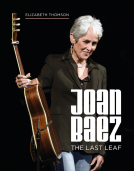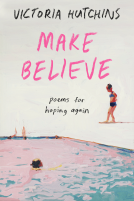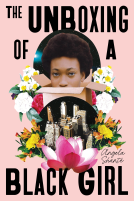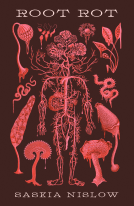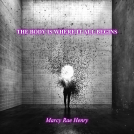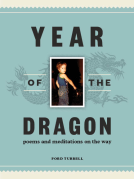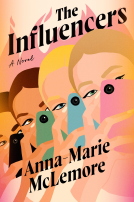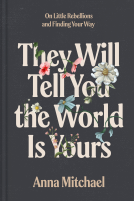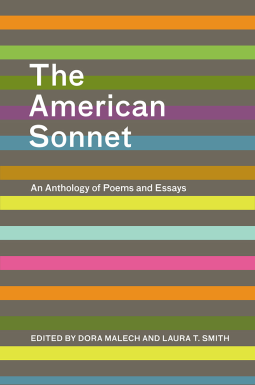
The American Sonnet
An Anthology of Poems and Essays
by Dora Malech, Laura T. Smith
This title was previously available on NetGalley and is now archived.
Send NetGalley books directly to your Kindle or Kindle app
1
To read on a Kindle or Kindle app, please add kindle@netgalley.com as an approved email address to receive files in your Amazon account. Click here for step-by-step instructions.
2
Also find your Kindle email address within your Amazon account, and enter it here.
Pub Date Jan 12 2023 | Archive Date Jan 12 2023
University of Iowa Press | University Of Iowa Press
Talking about this book? Use #TheAmericanSonnet #NetGalley. More hashtag tips!
Description
POETRY / LITERARY CRITICISM
Poet and scholar team Dora Malech and Laura T. Smith collect and foreground an impressive range of sonnets, including formal and formally subversive sonnets by established and emerging poets, highlighting connections across literary moments and movements. Poets include Phillis Wheatley, Fredrick Goddard Tuckerman, Emma Lazarus, Paul Laurence Dunbar, Gertrude Stein, Fradel Shtok, Claude McKay, Edna St. Vincent Millay, Ruth Muskrat Bronson, Langston Hughes, Muriel Rukeyser, Gwendolyn Brooks, Dunstan Thompson, Rhina P. Espaillat, Lucille Clifton, Marilyn Hacker, Wanda Coleman, Patricia Smith, Jericho Brown, and Diane Seuss. The sonnets are accompanied by critical essays that likewise draw together diverse voices, methodologies, and historical and theoretical perspectives that represent the burgeoning field of American sonnet studies.
Contributor List: Essayists
Abdul Ali, Baltimore, MD
Anna Lena Phillips Bell, University of North Carolina, Wilmington
Jodie Childers, Queens, New York
Benjamin Crawford, University of Alabama
Meg Day, Franklin and Marshall College
Donna Denizé, St. Albans School
Michael Dumanis, Bennington College
Jordan Finkin, Hebrew Union College
Rebecca Morgan Frank, Northwestern University
Anna Maria Hong, Mount Holyoke College
Gillian Huang-Tiller, University of Virginia, Wise
Walt Hunter, Clemson University
John James, University of California, Berkeley
Matthew Kilbane, University of Notre Dame
Diana Leca, University of Oxford
Ariel Martino, Colgate University
Nate Mickelson, New York University
Lisa L. Moore, University of Texas at Austin
Timo Müller, University of Konstanz, Germany
Carl Phillips, Washington University in St. Louis
Zoë Pollak, Columbia University
Jonathan F.S. Post, UCLA
Stephen Regan, Durham University, UK
Jahan Ramazani, University of Virginia
Hollis Robbins, University of Utah
Nathan Spoon, Joelton, TN
Marlo Starr, Wittenberg University
Yuki Tanaka, Hosei University, Japan
Tess Taylor, Ashland University
Michael Theune, Illinois Wesleyan University
Eleanor Wakefield, University of Oregon
Lesley Wheeler, Washington and Lee University
Jon Woodson, Howard University emeritus
Contributors List: Poets
Elizabeth Alexander, Agha Shahid Ali, Julia Alvarez, Maggie Anderson, Tacey Atsitty, Charles Bernstein, Ted Berrigan, Jen Bervin, Elizabeth Bishop, Louise Bogan, Ruth Muskrat Bronson, Gwendolyn Brooks, Jericho Brown, Lucille Clifton, Henri Cole, Wanda Coleman, Countee Cullen, William Cullen Bryant, E.E. Cummings, Meg Day, Natalie Diaz, Paul Laurence Dunbar, Alice Moore Dunbar-Nelson, Ralph Waldo Emerson, Rhina Espaillat, Tarfia Faizullah, Robert Frost, torrin a. greathouse, Marilyn Hacker, Robert Hayden, Terrance Hayes, Anthony Hecht, Lynn Hejinian, Leslie Pinckney Hill, Anna Maria Hong, Langston Hughes, David Humphreys, Helen Hunt Jackson, Tyehimba Jess, Helene Johnson, James Weldon Johnson, June Jordan, Douglas Kearney, Richard Kenney, Joan Larkin, Emma Lazarus, Mani Levb, Amy Lowell, Robert Lowell, Nate Marshall, Bernadette Mayer, George Marion McClellan, Brandy Nalani McDougall, Claude McKay, Joyelle McSweeney, Lo Kwa Mei-en, James Merrill, Phillip Metres, Edna St. Vincent Millay, Simone Muench, Marilyn Nelson, Craig Santos Perez, Carl Phillips, Sylvia Plath, Alexander Posey, Lizette Woodworth Reese, Adrienne Rich, Lola Ridge, Muriel Rukeyeser, Kay Ryan, Diane Seuss, Fradel Shtok, Aaron Shurin, giovanni singleton, Patricia Smith, Mary Ellen Solt, Nathan Spoon, Gertrude Stein, Adrienne Su, Lorenzo Thomas, Dunstan Thompson, Natasha Tretheway, Fredrick Goddard Tuckerman, Mona Van Duyn, Ellen Bryant Voight, Margaret Walker, Lucian B. Watkins, Phillis Wheatley, John Wheelwright, Jackie K. White, Walt Whitman, James Wright, Elinor Wylie
Advance Praise
“’We shall not always plant while others reap,’ promised Countee Cullen; the robust tradition of sonnets he represented is just one of several in this memorable, thoughtful, useful, and sometimes stellar collection’s deeply American braid, reflecting both a panoply of sonnets from U.S.-based writers (and translators!) and a splendid variety of contemporary writings on the form, a modern—but not too modern—pattern designed to make ‘the soul swing open’ (as Mona Van Duyn puts it) ‘on its hinges.’ Sonnets themselves train up to the present day and then introduce up-to-date reflections on the form, from major critics’ takes to up-and-coming poets’ thoughts: Jahan Ramazani on this ‘tightly wound global form,’ Meg Day's ‘Deaf and disabled existence,’ Timo Muller on Harlem Renaissance translation, arguments about neuroqueerness and autism in (wait for it) Robert Frost, and about where on Earth this form is going beyond the pentameter, beyond—or is it back to?—the past. ‘A sonnet is a mother,’ as the great Diane Seuss writes: here are its children.”—Stephanie Burt
“The American Sonnet will be embraced by all who’ve noted the lack of diverse scholarship on the sonnet, particularly regarding historically underrepresented sonneteers. With this anthology, Malech and Smith have deepened and expanded the range of our thinking on this form. I can’t wait to teach this book—and be taught by it.”—Beth Ann Fennelly, author, Heating & Cooling: 52 Micro-Memoirs
“I can’t imagine a group of people with whom I would be more excited to talk with about the sonnet than the essayists herein, nor talk more illuminating than their essays. And the sonnets themselves cover whatever the essays don’t (more Dunstan Thompson in anthologies, please). This is an ideal anthology.”—Shane McCrae, author, Cain Named the Animal
“With keen observation and rigorous inquiry, The American Sonnet documents and celebrates American poets’ vital contributions to an ancient, global verse form. The poems and essays collected here situate the ‘American sonnet’ within a centuries-long conversation about how poetry happens on the page and in the mind. By centering diverse, living American poets for whom the sonnet is a way to think deeply about social and political questions, this work offers a timely snapshot of our urgent literary moment. The American Sonnet is a feast of discovery for all readers.”—Kiki Petrosino, author, White Blood: A Lyric of Virginia
Available Editions
| EDITION | Other Format |
| ISBN | 9781609388713 |
| PRICE | $39.95 (USD) |
| PAGES | 404 |
Featured Reviews
So grateful to have received this beautiful book of sonnets and analysis. I will say that the display was a bit strange electronically, making it somewhat difficult to read; however, the actual content of the book was excellent. I loved the choice of sonnets and having an analysis allowed me to get deeper into the poem. Thank you!
Thank you to NetGalley and the publisher for an ARC of this anthology in exchange for my honest opinion. I enjoyed the scope of sonnets presented here, and there were several that I did not know, despite being an English major and literature teacher. I did feel a bit disappointed that there was not more analysis of each sonnet, which is why I requested the book. I can find any number of sonnets online; I really wanted a deep analysis that I could possible bring into my AP Literature classroom. Regardless, this is an excellent anthology.
 Bernie G, Reviewer
Bernie G, Reviewer
The first one-third of this book is an anthology of sonnets by American poets that highlight some of the characteristics of form and content that evolved in America. Therefore, one shouldn’t expect these to all be fourteen lines of iambic pentameter. America is the land of Whitman, and discomfort with strict rules and constraining requirements along with a desire to etch one’s individuality and voice into all activities is part of what makes a thing American. It’s an enchanting and suitably diverse (also an inherently American requirement) selection of poems, and I think all poetry readers would enjoy reading it. Included among the almost 100 poets are: Walt Whitman, Phillis Wheatley, Natasha Trethewey, Robert Frost, Langston Hughes, Gwendolyn Brooks, Agha Shahid Ali, Claude McKay, Edna St. Vincent Millay, e.e. cummings, Countee Cullen, Natalie Diaz, Emma Lazarus, Terrance Hayes, Muriel Rukeyser, Sylvia Plath, James Wright, Gertrude Stein, Paul Lawrence Dunbar, Ralph Waldo Emerson, and Lucille Clifton. The poets run the gamut from the Colonial Era to present-day heavyweights, and their works approach the sonnet from perfectly conventionally to wildly experimentally.
The remainder of the book is a collection of short essays that discuss various aspects of the sonnet in America. While the editors don’t explicitly group the essays, I would put them in three baskets. First, there are those essays that examine the work of a particular poet and discuss that artist’s influence on the sonnet. Second, some of the essays examine sonnets through the lens of a particular demographic and investigate how poets of that demographic have influenced, been influenced by, or modified the sonnet, be it those of a particular race, sexual identity, place on the autistic spectrum, etc. Third, most of the other essays explore technical aspects such as line length, rhyme schemes, metering, etc.
As I mentioned, I believe poetry readers will enjoy the selection of poems anthologized, herein. The essays are another matter. They are much more of a mixed bag for poets and poetry readers and are more geared toward other scholars. That is to say, some of them are both interesting and useful for poets and poetry readers, but others will probably not be of much interest to the non-academic reader. While the essays are brief and most are quite readable, a number of them either delve into arcane matters or tumble so deeply down the rabbit-hole of wokeness that it’s hard to grasp what the author’s point is (or whether he or she has one.)
If you enjoy poetry and are interested in the American influence on the sonnet, this book is well worth reading – at least the poems and a selection of the essays.
 Denise D, Educator
Denise D, Educator
WEDNESDAYS WITH DENISE: JANUARY 11, 2023
If you are, like me, endlessly fascinated with the sonnet and all it can hold, you’ll want to get yourself a copy of The American Sonnet: An Anthology of Poems and Essays by Dora Malechand Laura T. Smith which will be released tomorrow by University Of Iowa Press. From Phyllis Wheatley to Diane Suess, from Muriel Rukeyser to Patricia Smith, this anthology captures the flexibility and durability of the form. In addition to sonnets old and new, there are essays following each entry. A true delight of a book!
Thank you NetGalley and University Of Iowa Press for the chance to read this book.
While I wasn't able to complete all of it, I really loved most of the sonnets selected and I will probably end up purchasing this so that I can read the essays in peace. I really love that they add a little para after each sonnet.
Readers who liked this book also liked:
Silvia Moreno-Garcia
Historical Fiction, Literary Fiction, Sci Fi & Fantasy
